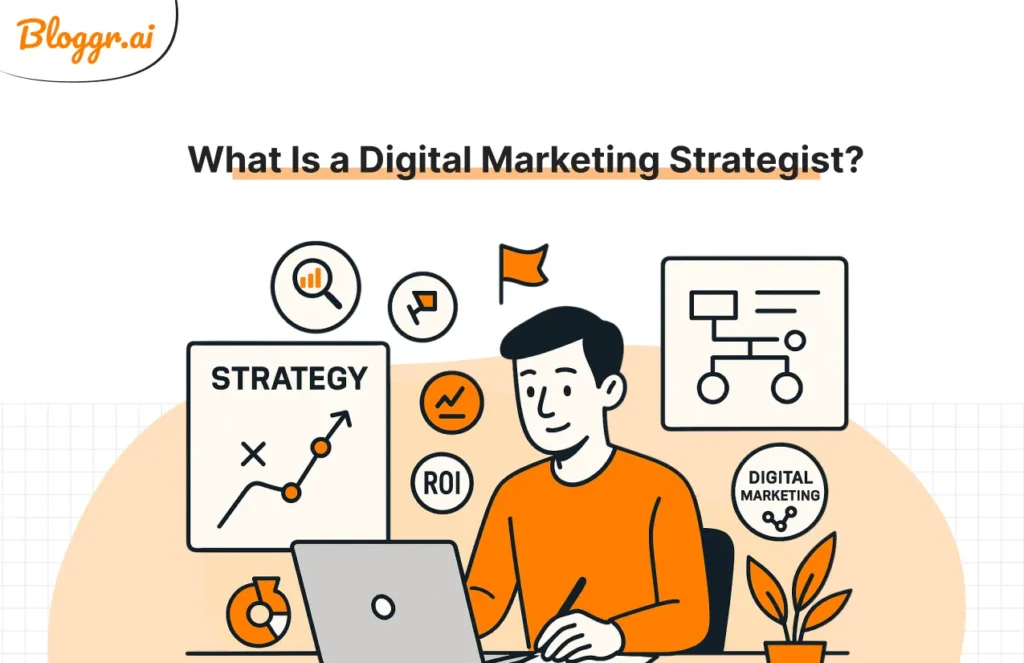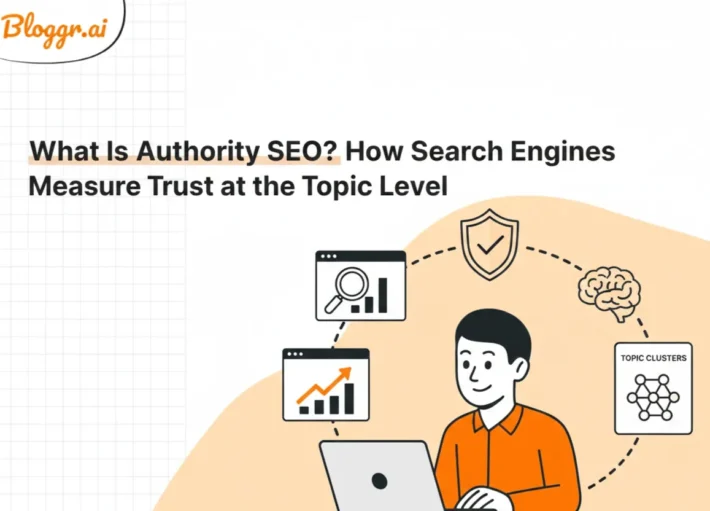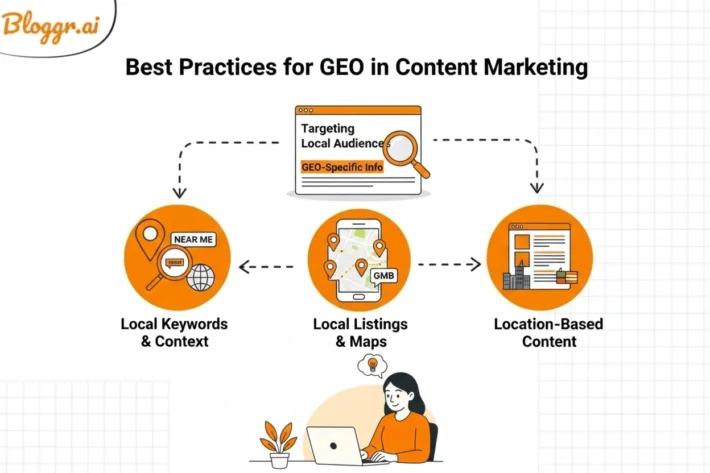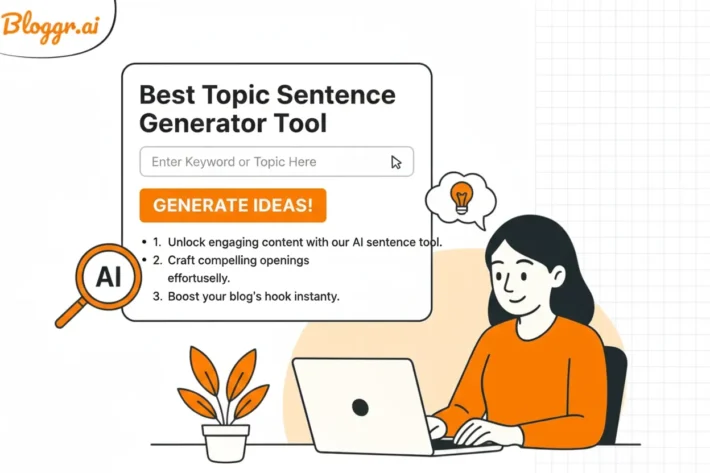Digital Marketing Strategist — Roles, Skills, and Strategies for 2025

TL;DR
- A Digital Marketing Strategist plans, executes, and optimizes marketing campaigns across multiple online channels.
- They align marketing efforts with business goals using data-driven insights.
- Key skills include SEO, content strategy, analytics, and campaign management.
- Emerging trends like AI tools, automation, and personalized marketing are reshaping the strategist’s role.
- Businesses rely on strategists to improve ROI, build brand visibility, and stay competitive in 2025.
Introduction
Marketing success is no longer just about creative campaigns — it’s about strategic thinking backed by data and intelligent tools. This is where the Digital Marketing Strategist steps in. These professionals bridge the gap between creativity and analytics, ensuring every marketing activity contributes to measurable business growth.
Whether it’s optimizing SEO performance, scaling paid ad campaigns, or crafting data-driven content strategies, a digital marketing strategist plays a pivotal role in shaping online success. Many now use advanced tools like an AI Blog Writer to create SEO-optimized blog content that strengthens visibility and drives organic traffic. As digital channels evolve rapidly, their ability to integrate such innovations and adapt strategically becomes the defining factor for brands competing in a crowded marketplace.
What Is a Digital Marketing Strategist?
A Digital Marketing Strategist is a professional who plans and manages an organization’s digital marketing initiatives to achieve specific business objectives — from brand awareness to lead generation and customer retention.
Unlike a digital marketer who focuses on executing individual campaigns, a strategist takes a holistic approach by mapping out the Digital Marketing Funnel — defining how prospects move from awareness to conversion. They design the overall framework — deciding which channels to use, what content resonates with audiences, and how to measure success.
Their ultimate goal is to ensure that all marketing efforts — SEO, content, PPC, social media, and email — work together as a cohesive ecosystem that drives conversions.
Why Every Business Needs a Digital Marketing Strategist
The digital landscape is more complex than ever. New algorithms, platforms, and technologies emerge constantly, and consumer behavior shifts faster than traditional marketing teams can adapt.
A Digital Marketing Strategist ensures your brand stays ahead of the curve by:
- Building unified strategies: They integrate SEO, paid ads, content, and social media into one cohesive plan.
- Enhancing ROI: Strategists allocate budgets efficiently and track performance across channels.
- Adapting to change: They keep businesses agile amid evolving market conditions and digital trends.
- Turning data into decisions: Instead of guessing what works, strategists analyze insights to optimize future campaigns.
Without strategic oversight, even the most creative marketing efforts can fall short of delivering results.
Top Industries Where Digital Marketing Is Essential
— Digital Marketing for Manufacturers
— Digital Marketing for Doctors
Core Responsibilities of a Digital Marketing Strategist
The responsibilities of a Digital Marketing Strategist span across all aspects of online marketing. Here’s a detailed look at what they do:
1. Developing Marketing Plans and Campaigns
They design integrated marketing campaigns that align with business goals — defining KPIs, identifying target audiences, and creating channel-specific roadmaps.
2. Overseeing SEO and Content Strategy
SEO is the backbone of any digital presence. SEO Strategists ensure content aligns with search intent, uses the right keywords, and contributes to long-term organic growth.
3. Managing Paid Advertising
From Google Ads to Meta campaigns, they optimize ad spend, A/B test creatives, and track conversions to maximize ROI.
4. Analyzing Data and Performance
Strategists interpret analytics dashboards to identify trends, measure success, and uncover new opportunities for growth.
5. Collaborating Across Teams
They work closely with copywriters, designers, developers, and sales teams to maintain a consistent brand voice and cohesive customer journey.
6. Staying Ahead of Industry Trends
Continuous learning is essential. Strategists track updates in Google algorithms, AI tools, and emerging marketing platforms to stay relevant.
Essential Skills of a Successful Digital Marketing Strategist
To excel in this role, strategists must master a blend of technical, analytical, and creative skills. Here are the most critical ones:
1. Strategic Thinking
They must see the big picture — understanding how every digital element contributes to the business objective.
2. SEO and SEM Expertise
A deep understanding of search engine optimization and paid search ensures visibility and consistent website traffic.
3. Data Analytics and Reporting
Knowledge of tools like Google Analytics 4, SEMrush, and Data Studio helps them make decisions based on metrics, not intuition.
4. Content and Copywriting Skills
They collaborate with content creators to ensure messaging aligns with the brand’s tone and user expectations.
5. Marketing Automation & CRM Knowledge
Familiarity with tools like HubSpot, ActiveCampaign, or Salesforce helps them streamline workflows and personalize campaigns.
6. Social Media Management
They understand how to engage audiences, boost visibility, and create campaigns that foster brand loyalty.
7. AI & Machine Learning Awareness
With AI-driven marketing becoming mainstream, strategists now use automation tools for personalization, predictive analysis, and content creation.
Want to know
How AI SEO Tools Scale Agile Solutions
Tools Every Digital Marketing Strategist Should Use
A successful strategist relies on an integrated tech stack to plan, execute, and monitor campaigns effectively.
Must-Have Tools:
- Google Analytics 4 (GA4): For traffic analysis and user insights.
- SEMrush / Ahrefs: For SEO Keyword Strategy and SEO tracking.
- HubSpot: For CRM and inbound marketing automation.
- Canva: For quick and effective design creation.
- Trello / Asana: For project management and task tracking.
- Bloggr AI: For SEO-optimized blog creation, topic ideation, and AI-driven content improvement. It helps strategists create high-quality, search-friendly content efficiently — ensuring better organic visibility and engagement.
How to Become a Digital Marketing Strategist
Becoming a successful digital marketing strategist requires a mix of education, experience, and continuous learning. Here’s how to start:
Step 1: Build a Strong Foundation
Pursue a degree or certification in marketing, communications, or business. Complement it with digital-specific certifications like Google Ads, Meta Blueprint, or HubSpot Academy courses.
Step 2: Gain Practical Experience
Start by executing campaigns — SEO projects, social media management, or running small paid ad campaigns. Real-world experience is invaluable.
Step 3: Learn to Analyze Data
Develop your ability to interpret analytics. Understanding performance metrics helps you craft more effective strategies.
Step 4: Stay Updated
Digital trends evolve daily. Subscribe to industry blogs, join LinkedIn communities, and follow experts to stay informed.
Step 5: Build a Personal Brand
Showcase your expertise through blogs, case studies, or a portfolio site. This builds credibility and helps attract opportunities.
As a Digital Marketing Strategist, You Need to know this:
— SEO Conferences to Attend in 2025–2026 (Virtual & On-Site)
Emerging Trends in Digital Marketing Strategy (2025 and Beyond)
The world of digital marketing is evolving at lightning speed. Strategists must be proactive in embracing innovation. Here are key trends shaping the future:
1. AI-Powered Marketing
AI tools are transforming campaign optimization, personalization, and predictive targeting. Strategists now rely on AI to automate repetitive tasks and analyze massive datasets.
2. Programmatic SEO
Programmatic SEO can automatically generate high-quality landing pages based on keyword clusters is becoming a popular growth tactic for scaling organic traffic.
3. Personalization at Scale
Marketers are moving from one-size-fits-all content to hyper-personalized campaigns that adapt based on user behavior and preferences.
4. Video and Short-Form Content
Platforms like YouTube Shorts, TikTok, and Instagram Reels dominate digital engagement. Strategists must prioritize storytelling through short-form videos.
5. Voice & Visual Search
Optimizing content for voice queries and image-based searches is now essential to maintain competitive visibility.
6. Data Privacy and Ethical Marketing
With growing privacy concerns and regulations, transparency and ethical marketing practices are becoming critical to maintaining consumer trust.
Conclusion
The role of a Digital Marketing Strategist in 2025 is more dynamic, analytical, and impactful than ever before. These professionals are the architects of digital growth, ensuring every campaign aligns with both data and creativity.
To thrive in this role, one must balance technical know-how with strategic foresight — combining SEO mastery, content planning through AI Blog Writer, paid media understanding, and AI-driven decision-making.
As businesses continue to embrace digital transformation, the demand for skilled strategists will only grow. Those who can harness technology, adapt to new trends, and deliver measurable results will remain indispensable in the evolving digital era.
FAQs on Digital Marketing Strategist
1. What does a digital marketing strategist do daily?
Ans: They analyze campaign performance, manage SEO strategies, plan content, and oversee digital advertising efforts.
2. Is coding required to be a digital marketing strategist?
Ans: Not necessarily. Basic HTML/CSS knowledge helps, but it’s not mandatory.
3. What’s the difference between a digital marketer and a strategist?
Ans: A strategist focuses on planning and overall marketing direction, while marketers execute specific campaigns.
4. Which industries need digital marketing strategists the most?
Ans: E-commerce, healthcare, SaaS, finance, education, and startups all rely heavily on digital strategy.
5. What is the salary of a digital marketing strategist?
Ans: Salaries vary by location and experience but typically range between $60,000–$120,000 per year globally.


